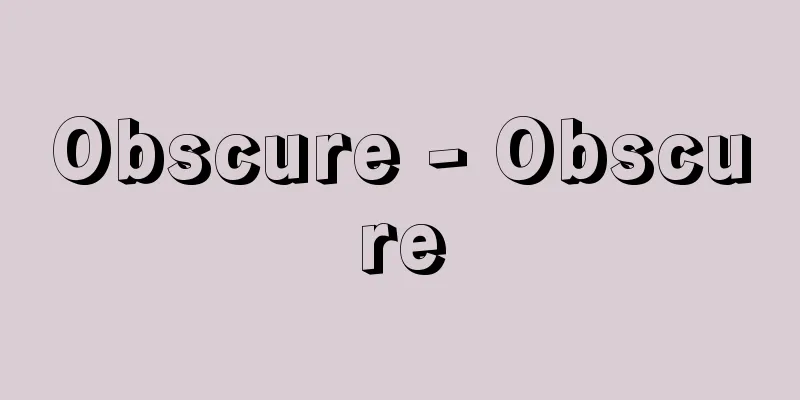Monster - Beast

〘noun〙① A being that takes on a mysterious appearance. Something that changes its original appearance and causes people to feel strange emotions. It is said that people with grudges can take on a mysterious appearance after death, and foxes, raccoon dogs, and cats are also said to take on a mysterious appearance and deceive people. A ghost. A shapeshifter . A monster. ※Ariake no Wake (late 12th century) 2 "My mother was also worried that a ghost had appeared." ② A trickster. A fraud. ※Tangihon Nemushigusa (1763-69) 1 "Before I knew it, I was in the company of monsters ." ③ (From the scene where he took the appearance of a doctor) A monk who buys prostitutes at a brothel. ※Zappai Yanagi Taru Shui (1801) vol. 16 "A bastard and a monster are running rampant in Shinagawa." ④ In the world of Bunraku puppet theater, this refers to someone who has been trained as an amateur and then becomes a connoisseur without going through the ranks of a professional. It is not necessarily a derogatory term. 5. An entertainer who has no formal training but who suddenly becomes popular through some kind of chance.ke-motsu [monster]Source: The Selected Edition of the Japanese Language Dictionary About the Selected Edition of the Japanese Language Dictionary Information |
〘名〙① ばけて怪しい姿をするもの。自己の本来の姿を変え、人に怪異の情を起こさせるもの。怨念を持った人間は死んでからばけるといわれ、狐・狸・猫などもばけて人をたぶらかすとされる。おばけ。変化(へんげ)。妖怪。※有明の別(12C後)二「母君もはけ物のあらはれいでたる心ちして」② くわせ者。いんちきなやつ。※談義本・根無草(1763‐69)前「いつとなく化物(バケモノ)仲間に入られ」③ (医者の姿になって行ったところから) 遊郭で遊女を買う僧侶のこと。※雑俳・柳多留拾遺(1801)巻一六「やぼと化もの品川に入みだれ」④ 人形浄瑠璃社会で、専門家としての階梯を通らず、素人として年季を入れた人が玄人に転じた者をいう。必ずしも軽蔑した称呼ではない。⑤ 本筋の修行もしてない芸人で、何かのはずみに一躍人気を得た者。
け‐もつ【化物】出典 精選版 日本国語大辞典精選版 日本国語大辞典について 情報 |
Recommend
Eros and Civilization
…He studied Hegel from a unique perspective that ...
EMS - EMS
A service or company that manufactures and designs...
Plastic composite materials
A composite material in which the continuous phase...
Exogenous branching
…the apical meristem of a stem is derived from th...
Gheorghe Şincai (English spelling)
1754‐1816 A Romanian historian and linguist from T...
Nazis - Nachisu (English spelling)
The nickname for the National Socialist German Wo...
Themis - Themis (English spelling)
A goddess in Greek mythology. She was one of the ...
Killer satellite
A military satellite designed to attack or disrupt...
Ennodius
…The last secular poet was probably Corippus in t...
Charles André Joseph Marie de Gaulle
1890‐1970 French soldier and politician. Born into...
Ionic polymerization
A type of polymerization reaction in which the te...
Samar
But even in a harsh life, there are occasional jo...
'Abd al-Qādir al-Jīlānī
1077‐1166 Founder of the Qadiriyya, the first myst...
Hojo Tokiyori
Year of death: November 22, 1263 (December 24, 126...
Ara macao (English spelling) Aramacao
...There are about 15 species distributed around ...









